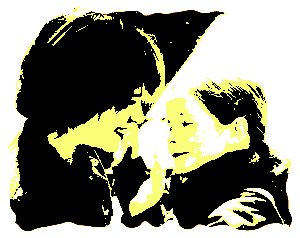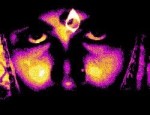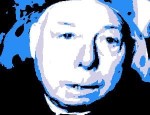Film Review
La Petite Chartreuse is a sombre meditation on
solitude from the perspective of three very different people, each of whom has been deeply
scarred by his or her personal experiences.
There is a middle-aged man who has barely
recovered from the alcoholism that drove away his wife, a young woman who, no more than
a girl herself, has had to bring up a young child alone, and the child who has to live
through the trauma of a terrible road accident. Each one of the characters seems
to be locked in the interior world, unable to make contact with the world outside.
They are all in some kind of waking coma, and it is doubtful whether any of them will
recover.
The film is loosely adapted from a novel by Pierre Péju and was directed by
Jean-Pierre Denis, his fifth film in twenty-five years. Denis's debut film
Histoire d'Adrien
won the Golden Camera award at the 1980 Cannes Film Festival and his subsequent work
includes the provocative wartime drama
Ici-bas (2012).
Appropriately for its dark and intimate subject, Denis adopts a stark naturalistic approach which is very effective
at conveying the sense of isolation and vulnerability each of the three characters has
to live with.
Olivier Gourmet's portrayal of Etienne is particularly memorable.
The actor is renowned for his convincing performances in this kind of understated film
(exemplified by the Dardenne brothers' realist dramas
Le Fils (2002)
and
Le Silence de Lorna (2008)), and he is
very much the focal point of the film, to the extent that the part of Pascale is almost
reduced to that of a secondary character - which is probably a mistake, since we are not
given the opportunity to compare the two characters in any great depth.
Making her screen debut as the angelic little girl
is the enchanting Bertille Noël-Bruneau,
who would subsequently feature in Luc Jacquet's
Le Renard et l'enfant (2007).
The first half of the film is totally absorbing and very nearly faultless. Watching Etienne
come to terms with what he has done and then seeing him, reluctantly, take the place of
the mother who just cannot cope offers an experience for the spectator which is as harrowing
as it is poignant. Whilst the dominant mood of the film is its bleakness there are
some moments of tenderness, as Etienne and Eva awaken in one another some vestige of human
feeling. The problem is that towards the end, Jean-Pierre Denis seems to eschew
realism for plot contrivances in a slightly botched and misguided attempt to tie up the
narrative. There's no need for Pascale to have any deep feelings for Etienne
and the scene where they end up rolling about in the grass is as absurd as it is unnecessary.
Likewise, the final, Jack-London-inspired, chapter in the drama, whilst touchingly poetic, feels
a tad false, jarring somewhat with the trenchant realism of what went before.
© James Travers 2007
The above content is owned by frenchfilms.org and must not be copied.
Film Synopsis
Pascale is an out-of-work actress who lives alone with her eight year old daughter, Eva.
She isn't the most attentive of mothers and, one day, she forgets to collect Eva from
school. Anxious that she has been abandoned, the little girl runs into a busy road
- and is knocked down by a car. The driver, Étienne Vollard, can hardly take
in what has happened. It is the latest in a series of disasters that has made him
a virtual recluse. With Eva in hospital in a deep coma, her mother doesn't know
how to react, and appeals to Étienne to stay with the child. Whilst Pascale
is away looking for work, Étienne recites stories to the sleeping Eva. Then,
against the odds, the little girl begin to awake...
© James Travers
The above content is owned by frenchfilms.org and must not be copied.



